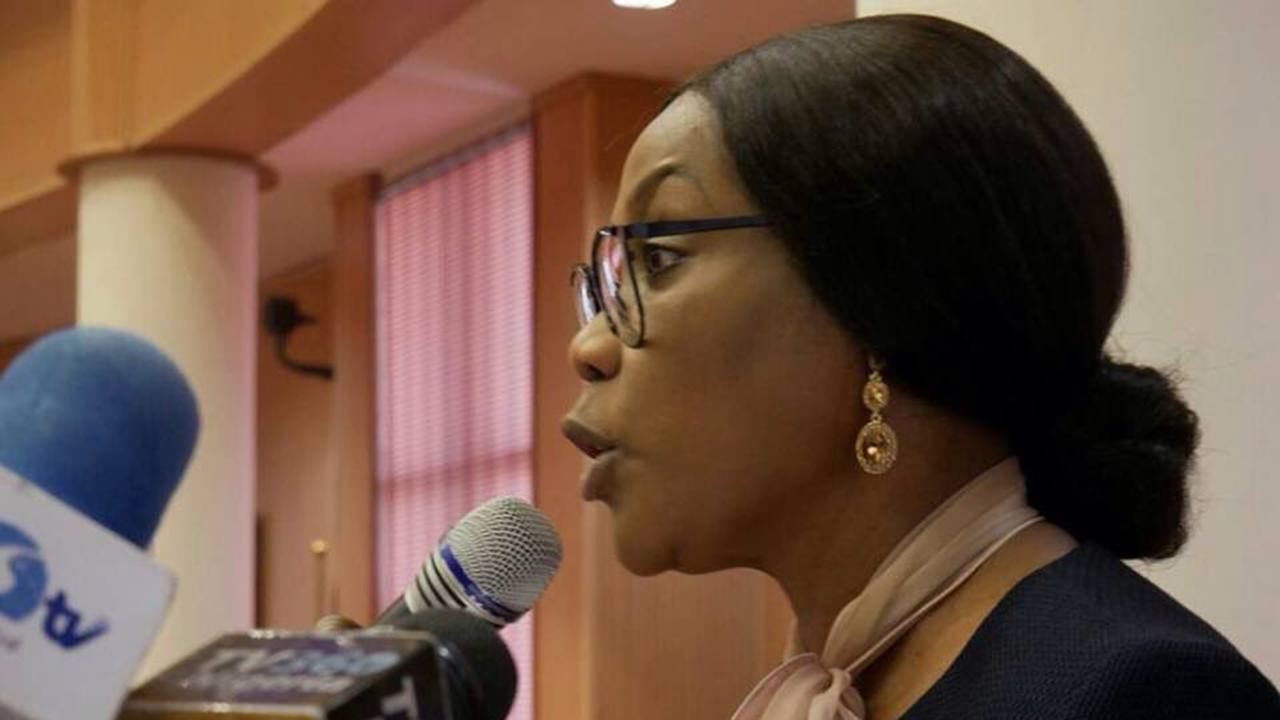
Photo TWITTER/naptipnigeria
Director-General of the agency, Dame Julie Okah-Donli, who disclosed this in Abuja during a press conference to mark the 15 years anniversary of the agency, said the International Organisation for Migration (IOM) had also rescued 7,000 persons from Libya.
She noted that although they have made thousands of arrest in the last 15 years, but a lot of prosecutions and investigations are currently ongoing.
NAPTIP DG, who spoke on Nigerians stranded in Russia, said the agency had already written to the Federal Ministry of Sports to invite the Super Eagles and those who left for the World Cup to report themselves to NAPTIP so as to be sure they have returned.
In a related vein, Oyo State Government has reaffirmed its commitment to advocacy programmes in rural and urban areas to stop human trafficking.
The state Commissioner for Women Affairs, Community Development, Social Welfare and Poverty Alleviation, Mrs. Atinuke Osunkoya, stated this yesterday at a programme organised by Live Abundantly Empowerment Initiative (LAEI), in collaboration with her ministry, to mark the 2018 World Day Against Trafficking in Persons held at the Civic Centre, Idi-Ape, Ibadan, the state capital.
She noted the rising determination to end the scourge, which led to a growth in the movement against sexual harassment, violence, hard labour and discrimination against victims.
Founder/Executive Director of LAEI, Dr. Ama Onyerinma, identified awareness, advocacy and education as crucial in all levels to tackle the menace.
Also, wife of the governor, Dr. Florence Ajimobi, represented by Mrs. Dolapo Oyedipe, said it had become a fundamental challenge due to the country’s porous borders.
Meanwhile, stakeholders have called on the Federal Government to invest sufficiently in education and job creation for citizens.
They noted that these were necessary to curb the menace as a large number of the trafficked persons were being lured into the act due to ignorance, unemployment and poverty.
Executive Director, Civil Society Legislative Advocacy Centre (CISLAC) and Chairman, Board of Amnesty International Nigeria, Auwal Ibrahim Musa, who spoke with The Guardian, said widespread poverty, lack of political will and commitment to enforce existing legislation as well as weak legal system was responsible for the rise in the scourge.
While Musa noted that there is an urgent need to curb the situation at all cost to sanitize the society for protection of human rights, a legal practitioner and analyst on Diaspora affairs, Ajayi Oluwatosin, blamed bad governance on the monster.
According to him, the rise in the scourge was attributable to the negative impacts of activities of government that have left citizens hungry and eager to survive through any means.
[ad unit=2]



